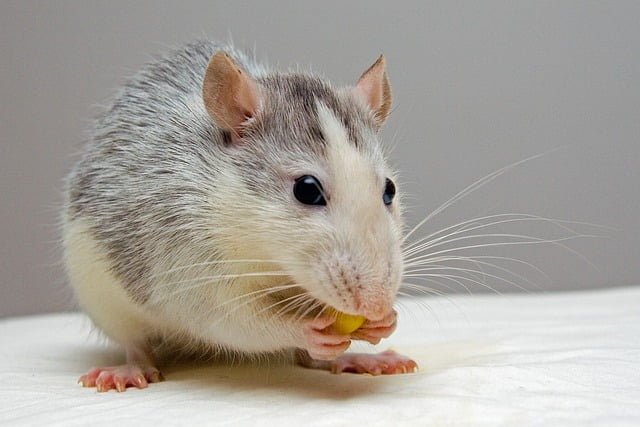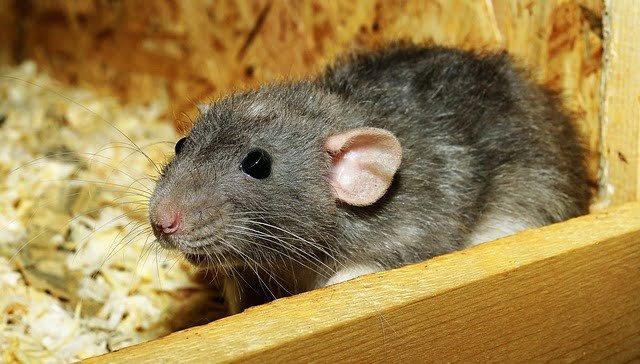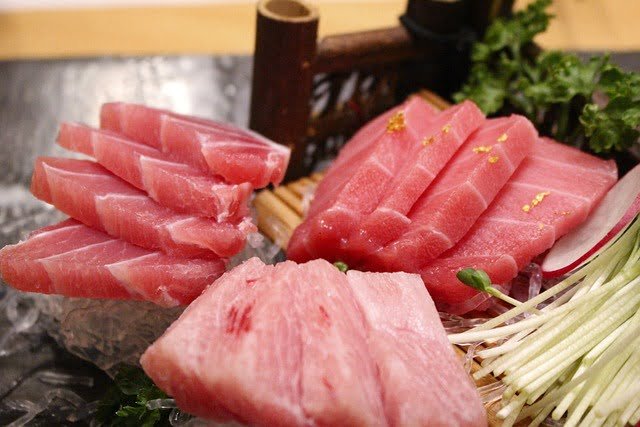Rats are known to be opportunistic feeders and can eat a variety of foods. However, as a rat owner, it is important to ensure that your furry friend is eating a balanced diet that meets their nutritional needs. One question that often arises is whether rats can eat tuna.
Tuna is a popular seafood that is rich in protein and omega-3 fatty acids. While it may seem like a healthy snack for your pet rat, it is important to consider a few factors before feeding them tuna. In this article, we will explore whether rats can eat tuna and what precautions you should take if you decide to feed it to them.

Understanding Rats’ Dietary Needs
Rats are omnivorous, which means they can eat both plant and animal-based foods. However, their dietary requirements are different from humans and other pets. As such, it’s important to understand what rats need in their diet to keep them healthy and happy.
Protein
Protein is an essential part of a rat’s diet, as it helps support their growth, development, and overall health. Rats require a diet that is high in protein, with a recommended intake of 16-20% of their daily diet.
Fat
Fat is also an important part of a rat’s diet, as it provides them with energy and helps keep their skin and coat healthy. However, rats can quickly become overweight if they consume too much fat, so it’s important to provide them with a balanced diet that isn’t too high in fat.
Carbohydrates
Carbohydrates are a good source of energy for rats, but they should be consumed in moderation. Rats can easily become overweight if they eat too many carbohydrates, so it’s important to provide them with a balanced diet that includes a variety of foods.
Vitamins and Minerals
Rats require a variety of vitamins and minerals to keep them healthy. Some of the most important vitamins and minerals for rats include vitamin D, calcium, and phosphorus. These nutrients help support their bone health, immune system, and overall health.
In conclusion, rats have unique dietary needs that should be met to keep them healthy and happy. Providing them with a balanced diet that includes a variety of foods is key to ensuring they get the nutrients they need.
Can Rats Eat Tuna?
We have received several inquiries about whether or not rats can eat tuna. After conducting research and consulting with experts, we have compiled the following information.
Tuna is a type of fish that is commonly consumed by humans. It is a good source of protein and omega-3 fatty acids. However, it is important to note that rats have different nutritional needs than humans.
While rats can technically eat tuna, it is not recommended as a regular part of their diet. Tuna contains high levels of mercury, which can be toxic to rats if consumed in large quantities. In addition, tuna is also high in sodium, which can lead to health problems such as high blood pressure in rats.
If you do decide to feed your rat tuna, it is important to do so in moderation. A small amount of tuna as an occasional treat is unlikely to cause harm. However, it should not be a staple in their diet.
In conclusion, rats can eat tuna, but it is not recommended as a regular part of their diet due to the high levels of mercury and sodium. If you do choose to feed your rat tuna, do so in moderation.
Health Benefits of Tuna for Rats
When it comes to feeding rats, tuna can be a great source of nutrition. Here are some of the health benefits of tuna for rats.
High in Protein
Tuna is a great source of protein for rats. Protein is essential for growth, maintenance, and repair of body tissues. It also helps to maintain a healthy immune system. Rats require a diet that is high in protein, and tuna can provide that.
Omega-3 Fatty Acids
Tuna is also rich in omega-3 fatty acids. These are essential fatty acids that rats cannot produce on their own. Omega-3 fatty acids are important for brain development and function, as well as for maintaining a healthy coat and skin.
In addition to these benefits, tuna is also low in fat and calories, making it a great option for rats that are prone to obesity. However, it is important to note that tuna should be fed in moderation, as too much can lead to mercury poisoning.
Overall, tuna can be a great addition to a rat’s diet, providing them with essential nutrients and helping to keep them healthy.

Potential Risks of Feeding Tuna to Rats
When it comes to feeding rats, tuna is a popular choice for many pet owners. However, there are potential risks associated with feeding tuna to rats that should be considered before making it a regular part of their diet.
Mercury Content
One of the biggest concerns with feeding tuna to rats is the high levels of mercury found in this fish. Mercury is a toxic heavy metal that can accumulate in the body over time and cause a range of health problems, including neurological damage, kidney damage, and even death.
According to the Environmental Protection Agency (EPA), the safe limit for mercury consumption is 0.1 micrograms per kilogram of body weight per day. However, some types of tuna can contain up to 0.7 micrograms of mercury per gram, which means that even a small amount of tuna can exceed the safe limit for rats.
To minimize the risk of mercury toxicity, it’s important to limit the amount of tuna that rats consume and choose low-mercury options whenever possible. Some examples of low-mercury fish that are safe for rats to eat include salmon, sardines, and tilapia.
High Sodium Levels
Another potential risk of feeding tuna to rats is the high sodium content of this fish. Sodium is an essential mineral that plays a role in many bodily functions, but excessive sodium intake can lead to health problems such as high blood pressure, heart disease, and stroke.
Tuna is naturally high in sodium, with some types containing up to 400 milligrams of sodium per ounce. This can be especially problematic for rats, as they are much smaller than humans and have a lower tolerance for sodium.
To avoid excessive sodium intake, it’s important to limit the amount of tuna that rats consume and choose low-sodium options whenever possible. Some examples of low-sodium fish that are safe for rats to eat include cod, haddock, and trout.
Overall, while tuna can be a nutritious and tasty addition to a rat’s diet, it’s important to be aware of the potential risks associated with feeding this fish to rats. By limiting the amount of tuna they consume and choosing low-mercury, low-sodium options whenever possible, we can help ensure that our furry friends stay healthy and happy.
How to Serve Tuna to Rats
When it comes to serving tuna to rats, there are a few things to keep in mind to ensure that it is safe and healthy for them to eat. Here are some tips on how to serve tuna to rats:
Choose the Right Type of Tuna
When selecting tuna for your rats, it is important to choose the right type. We recommend using canned tuna in water, rather than tuna in oil or with added flavors. This is because oil and added flavors can be unhealthy for rats and may cause digestive issues.
Prepare the Tuna
Before serving tuna to your rats, it is important to prepare it properly. We recommend draining the water from the can and rinsing the tuna in fresh water to remove any excess salt or other additives.
Serve in Moderation
While tuna can be a healthy treat for rats, it should be served in moderation. We recommend only serving tuna once or twice a week and in small amounts. Too much tuna can cause health issues for rats, including mercury poisoning.
Monitor Your Rat’s Reaction
As with any new food, it is important to monitor your rat’s reaction to tuna. Some rats may have allergies or sensitivities to tuna, so it is important to watch for any signs of digestive issues or other health problems.
Overall, serving tuna to rats can be a healthy and enjoyable treat, as long as it is done in moderation and with the right preparation. By following these tips, you can ensure that your rats are getting the nutrients they need without putting their health at risk.
Alternatives to Tuna for Rats
While tuna can be a healthy and tasty treat for rats, it’s important to offer a variety of foods to ensure a balanced diet. Here are some alternatives to tuna that you can offer your furry friend:
Cooked Chicken
Cooked chicken is a great source of protein for rats. It’s easy to prepare and can be served either warm or cold. Be sure to remove any bones, as they can be a choking hazard.
Boiled Eggs
Boiled eggs are another great source of protein for rats. They can be served either whole or chopped up into small pieces. Just be sure to avoid giving your rat too much egg, as it can cause digestive issues.
Fresh Fruits and Vegetables
Fresh fruits and vegetables are a great way to add some variety to your rat’s diet. Some good options include carrots, broccoli, apples, and bananas. Be sure to wash all fruits and vegetables thoroughly before serving.
Yogurt
Plain, unsweetened yogurt is a good source of protein and calcium for rats. Just be sure to avoid flavored yogurts, as they often contain added sugars that can be harmful to your rat’s health.
Commercial Rat Food
Commercial rat food is formulated to provide a balanced diet for rats. Look for a high-quality rat food that contains a variety of ingredients, such as grains, seeds, and vegetables. Be sure to read the label carefully to ensure that the food meets your rat’s nutritional needs.
In conclusion, while tuna can be a healthy treat for rats, it’s important to offer a variety of foods to ensure a balanced diet. By incorporating some of these alternatives into your rat’s diet, you can help keep them happy and healthy.

Frequently Asked Questions
What can rats not eat?
Rats should not eat foods that are high in sugar or fat. They should also avoid foods that are toxic to them, such as chocolate, caffeine, and alcohol. Additionally, rats should not eat raw potatoes, citrus fruits, or green bananas.
What herbs can rats eat?
Rats can eat a variety of herbs, including basil, parsley, and oregano. These herbs can be added to their food or given to them as a treat.
Rat safe foods?
Rats can eat a variety of foods, including fruits, vegetables, grains, and protein sources such as meat and eggs. However, it’s important to feed them a balanced diet and avoid overfeeding them.
Can rats eat cooked fish?
Yes, rats can eat cooked fish in moderation. However, it’s important to avoid giving them fish that is high in mercury, such as tuna.
Is fish OK for rats?
Fish can be a good source of protein for rats, but it’s important to choose fish that is low in mercury and avoid giving them raw fish.
What meats are safe for rats?
Rats can eat a variety of meats, including chicken, turkey, and beef. However, it’s important to avoid giving them processed meats or meats that are high in fat.





